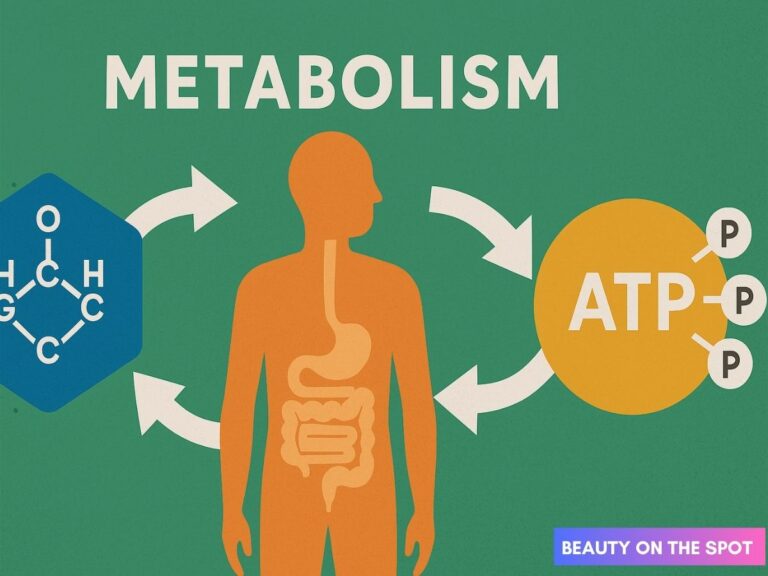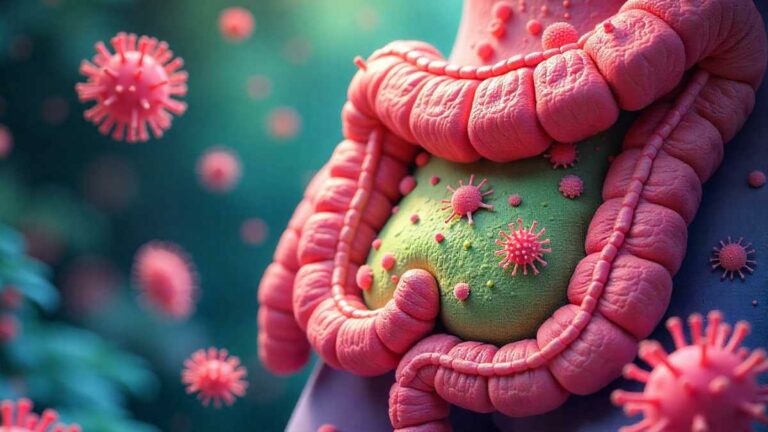The Flexitarian Diet – What Is It All About
The Flexitarian Diet
A flexitarian diet is also referred to as a Casual Vegetarian diet. It encourages mostly plant-based foods but does not prohibit you from eating meat or other animal products.
It is more of a moderate vegan diet where you can consume meat to satisfy your needs.
If you are looking forward to eating more plant foods, but don’t want to cut out meat from your diet list, then a Flexitarian diet would be the best pick for you.
In this article, you will get an overview of the Flexitarian diet, its working process as well as advantages and disadvantages of it.
What Is the Flexitarian Diet
This interesting diet plan was designed by dietitian Dawn Jackson Blanter. He created this diet for those dietary who opt for choosing a Vegetarian diet, but cannot resist eating meat or animal products.
If you notice the name, you will find that it is a combination of two different words – Flexible and Vegetarian. A flexitarian can add meat to his diet list while vegans completely refrain from eating meat, fish, and other dairy products.
So, obviously, the flexitarians are not considered vegans. It is a modified version of veganism. This diet is more of a lifestyle than a diet as it does not have any clear-cut rules on how many calories you need to consume.
There are five basic principles of this diet. They are:
- Give priority to Vegetables, fruits, and whole grains.
- Replacing meat as a source of protein with vegetables and grains.
- You should eat meat and animal products in a timely manner.
- Avoid processed food as much as possible.
- Try not to eat sweets.
Analyzing the principles that are stated above it is easy to say that the Flexitarian diet is all about eating more plant foods and less meat.

Health Benefits of a Flexitarian Diet
There are some health benefits found by the researchers while following the Flexitarian diet.
Heart disease:
Diets which are rich in fiber and good fats are very effective for the human heart. After an elaborate study, dietitians found that people who are vegetarians, tend to have fewer heart diseases than people who are not vegetarians.
This research was done by observing 45,000 adults. They ended up with the decision that vegetarians had a 32% lower risk of heart disease.
It is because the fiber and antioxidants which are present in vegetables, reduce blood pressure. These components also increase good cholesterol in your body.
It is mentionable that these studies were performed on people who follow a vegetarian diet strictly. That’s why it is a bit hard to say that Flexitarian Diet would have the exact effect on your body.
Nevertheless, as the Flexitarian diet is mostly dependent on plant-based foods, it is safe to say that you will most likely benefit from it.
Weight loss:
To lose weight, the Flexitarian diet is a proven and tested dietary system. This diet limits high-calorie foods and processed foods. Rather than that it focuses on taking more plant food which is lower in calories.
It is proven that vegetarian diets are more effective in losing your body weight than other Non-vegetarian diets.
A broad study of more than 1100 students showed that those who follow a vegetarian diet system for at least 4 months tend to lose 4 pounds more than those who do not.
Since the Flexitarian diet is a semi-vegetarian diet, it will help you with weight loss without any doubt. But obviously, it is not as effective as the vegan diet.
Diabetes:
There are generally three types of diabetes. One of those is Type 2 diabetes.
Type 2 diabetes is considered to be a global health epidemic. And for those patients who have been suffering from type 2 diabetes, it is a matter of relief that a plant-based diet help to mitigate this disease.
In the Flexitarian diet, there are a plethora of foods available which are high in fiber and do not contain unhealthy fats. As a result, it helps you fight your diabetes.
Cancer:
The foods that we eat while dieting in this method contain antioxidants that help prevent cancer. Fruits, vegetables, and seeds contain almost all types of nutrients that play a major role in cancer.
A study shows that vegetarians are 8% less likely to get colorectal cancers than non-vegetarians. This research was done by observing 78,000 individual people.
Therefore, it can be said without any hesitation that a flexitarian diet reduces the chances of cancer risk if followed strictly.
Good for the environment:
This diet not only benefits you but also benefits the environment.
There is a staggering figure which tells us if people convert their diet plan into a flexitarian diet, the greenhouse gas emission will be decreased by up to 7%. There is a balanced ecological reason behind it.
If people start eating more plant foods, the demand will also rise. This will lead farmers to grow more fruits and vegetables to meet the demand.
Cultivating more plants will be required at that time. It is a fact that growing plant protein takes 10 times less energy than producing animal protein.
What Are The Results That One Can Expect While Following This Diet
It is claimed that the Flexitarian diet helps you to lose weight by up to 15%. It is a fact that it decreases the chance of having heart disease, diabetes, and cancer.
As this diet discourages you to eat processed and junk foods, following this diet would certainly decrease your craving for those types of foods.
You will start loving to eat more whole and natural food which is really good for your health. One must admit the fact that this diet is an ecologically friendly diet.
Health Risk Of a Flexitarian Diet
Changing a diet plan is never an easy task, however, it gives rise to some unexpected risks as well. For instance, meat is an excellent source that provides zinc, iron, vitamins, and dietary proteins.
When the flexitarians decide to minimize the intake of meat from their everyday meal, they must bear in mind that there must be some other source that should provide the same kind of nutrients.
Limiting the intake of meat can increase the risk of anemia. Therefore, to avoid this situation increases the consumption of plant-based food that has iron in it. You can switch to soybeans, quinoa, chickpeas, and lentils.
To fulfill the need for protein, you should consume nuts, seeds, tofu, beans, and lentils. It is important to pay keen attention to health and well-being while approaching to make a flexitarian diet.
Changes in diet plans always require a proper approach and it is very important to know what should be consumed and what should not be.
So before switching to the diet, you must research carefully and step ahead with all the precautions.
Who Should And Should Not Consider Flexitarian Diet
If you are someone who is very much concerned about your weight meanwhile you are on the verge of being overweight, then this is the perfect diet for you.
This diet has all the proper aspects that will help you to maintain your weight.
The case is even similar for those who are suffering from high blood pressure, high cholesterol levels, type 2 diabetes, and cardiovascular risks.
A flexitarian diet is even for people who are preferring to consume plant foods as they are facing ethical concerns about consuming meat.
But this is not the case for all. A diet can be a life savior for one and can even turn into a death trap for others.
This is the reason why it is always advised to consult the doctor or dietitian before switching or making changes to the diet.
It is highly recommended to discuss with a doctor about the diet if you have faced any of the following problems.
- If you have a history of an eating disorder
- If you are suffering from any type of anemia
- If you are dietary allergic or intolerant towards specific plant food.
Is Flexitarian Diet Right for You
There is nothing a perfect diet in the world of diets. The diet that is perfect for you might not be the apt one for the other person and vice versa. But as the name speaks it all, this diet is flexible, if not perfect.
As mentioned earlier, you have the freedom of altering some aspects of a flexitarian diet to your flexibility.
As flexibility is the main moto of this diet, some dietitians consider this diet to be a more sensible and sustainable medium of eating. This diet doesn’t restrict you to follow any strict order of eating.
However, the reduction of meat intake helps you in reducing weight and even reduces the risk of heart disease.
Nowadays, these two reasons are vital reasons for mortality around the globe. Moreover, a reduction in meat intake is always a good idea for leading a healthy life.
A flexitarian diet is about to slow and steady changes that will lead to a healthy and winsome relationship with your health and food.
There is no right or wrong diet, it always depends on your health and willpower to carry on a diet for a longer time span.

Foods to Eat
A flexitarian diet always focuses on food items that are plant-based. It emphasizes plant proteins and less processed plant food. While limited intake of animal products is always recommended.
Here is the list of foods that you should include:
- Proteins: Legumes, lentils, tofu, soybeans, tempeh
- Starchy veggies: Sweet potato, peas, corn, winter squash
- Nonstarchy veggies: Cauliflower, green peas, carrots, green bell pepper, sprouts, beans
- Fruits: Apples, cherries, grapes, berries, oranges
- Nut and seeds: Flaxseeds, almonds, walnut, chia seeds, cashews, pistachios, coconut, avocado, peanut butter, olives.
- Whole grains: Farro, teff, quinoa, buckwheat,
- Herbs and spices: Oregano, thyme, mint, basil, cumin, ginger, turmeric
- Plant-based milk: Soy milk, coconut, almond, hemp
- Beverage: Tea, coffee, water
The following items of food must be consumed in moderation:
- Dairy
- Meat
- Fish
- Eggs
- Poultry
Food to Minimize
The main focus of a flexitarian diet is not only to limit the consumption of animal products and meat but also to limit the intake of refined grains added sugar and highly processed food.
Here is a list of food you should not eat on a regular basis on a flexitarian diet.
- Fast food: Burger, chicken nuggets, fries, milkshakes
- Refined carbs: Bagels, white rice, croissants, white bread
- Added sugar and sweet dishes: Soda, candy, cake, donuts
- Processed meats: Bologna, bacon, sausage, beef, pork

Meal Plan for Flexitarian Diet
Any diet can turn into a boring routine if the same foods are repeated day after day. Therefore, here is a meal plan for you that will help you in acquiring an idea about how to start a flexitarian diet.
Sunday
- Breakfast: poached egg and steel-cut oats with an orange
- Lunch: a burrito bowl with brown rice and green veggies.
- Dinner: lentil soup with brown bread
Monday
- Breakfast: coconut yogurt with banana and cinnamon
- Lunch: salad with corn, shrimp, and avocado
- Dinner: grilled salmon with tomato sauce and beans
Tuesday
- Breakfast: smoothie made of almond milk and apple
- Lunch: chard wrap with salad
- Dinner: zucchini noodles
Wednesday
- Breakfast: whole grain toast with fruit salad
- Lunch: peanut butter sandwich with berries
- Dinner: bean burger with mashed sweet potatoes
Thursday
- Breakfast: tofu scrambled with spices
- Lunch: kale Caesar salad with peanut dipping sauce
- Dinner: ground turkey stuffed in bell pepper
Friday
- Breakfast: sunny side egg with veggies
- Lunch: quinoa salad with feta cheese
- Dinner: lentil stew
Saturday
- Breakfast: steam vegetable salad with spices
- Lunch: whole grain wrap with chickpeas
- Dinner: baked chicken with roasted cauliflower.
The meal plan completely depends upon personal preference. You can add and deduct food item until and unless it falls under the flexitarian diet food items.

The meal plan completely depends upon personal preference. You can add and deduct food item until and unless it falls under the flexitarian diet food items.
Explore Also:
Creativehouseblog
Dietsheriff
Gigasecurehome
Final Thoughts
As you can see, the Flexitarian Diet has many benefits being a hybrid diet. The focus is primarily on eating plant-based foods and limiting the amounts of animal products you eat.
Plant-based diets are becoming more popular these days since they can be a much healthier and friendlier diet.
For more information and to help you get started, see “Best Books To Read When Starting The Flexitarian Diet”.
Before making any major changes in your diet, it is always best to consult your doctor or dietician. Sometimes easing into a diet plan can be the best option.





![New Year, New Gut Resolutions That Actually Help[1]](https://mycleanseplan.com/wp-content/uploads/2025/11/New_Year_New_Gut__Resolutions_That_Actually_Help1-768x448.jpg)

![Microbial Signature Index Unveiling Disease Prediction Capabilities[1]](https://mycleanseplan.com/wp-content/uploads/2025/10/Microbial_Signature_Index__Unveiling_Disease_Prediction_Capabilities1-768x448.jpg)


